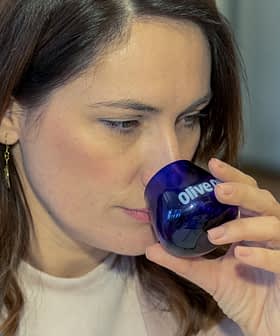Small Sampling in Sweden Spurs Debate on Tasting Panels
Sweden tested 21 brands that it suspected could be mislabeled and found most of them were. Producers and regulators are arguing over the survey's methods.
In a small, two-year survey, the Swedish Food Agency found that 17 of 21 bottles labeled extra virgin olive oil did not meet the standard for the grade.
The oils that failed were either virgin grade or lampante. None of the tested oils was found to be blended with another type of oil altogether.
We could establish non-compliances where the olive oil in the bottles was not consistent with the declared category on the label. The consumers did not get what they paid for.
“Extra virgin is a quality label that many pay extra for,” Aron Lindén, the state inspector at the Swedish Food Agency, said. “It is disturbing that only a few of the oils we examined meet the requirements.”
The selected oils were taken from retail establishments and analyzed using chemical and organoleptic tests.
All 17 of the olive oils that failed did so in the organoleptic evaluation, which was conducted by a European Commission-approved panel that is also recognized by the International Olive Council.
The testing was undertaken as part of conformity checks that are mandated by the European Union to ensure that product labeling is compliant with legal requirements.
The fact that only 21 brands were tested over a two-year period — samples the agency already suspected for one reason or another — suggests scant enforcement of internationally recognized olive oil standards in Sweden, like everywhere else. In 2018, Sweden’s olive oil imports amounted to 42 million Swedish Krona ($43.8 million), according to the market data provider, Statista.
See Also:Olive Oil Labeling“The sampling was focused on products where the Swedish Food Agency suspected a major risk for non-conformities, in this case in olive oils of the category ‘extra virgin’ sold at the retail level,” Erica Fiume, a food inspector for the city of Stockholm, told Olive Oil Times.
Fiume said the agency’s focus on high-risk items likely contributed to a high fail rate that should not be considered representative of the broader situation in Sweden.
“To get a representative figure of the overall conformity of extra virgin oils in Sweden, we believe a greater number of samples would be necessary,” she said.
Fiume added that the Swedish Food Agency did not establish whether the products had been intentionally mislabeled or the quality of the oil had degraded over time.
According to the agency, all of the companies which had olive oils fail the testing were notified and have since taken steps to ensure better labeling accuracy.
Punitive measures – including prohibitions on putting the oils in question back on the market – were taken against some of the companies. However, the agency did not specify which companies were being punished.
Two of the oils that failed belong to a Swedish company, Di Luca & Di Luca, that imports Mediterranean foods. Its Zeta Classico and Original brands turned out to be lampante and have been taken off the market, according to the company and the Swedish Food Agency.
Christian Di Luca, the CEO of the company, criticized the results of the agency’s testing. He said separate tasting panels had found the two oils in question met all of the standards for extra virgin olive oil.
“One of our oils in the test has been judged by 10 different taste panels to have all three [chemical, physical and organoleptic] qualities,” he said.
However, Fiume stood by the results of the Swedish Food Agency and said only the data from the European Commission-approved panel could be used in determining whether the oils qualified as extra virgin or not. “The result is objective, accurate and legally certain,” she said.
Helene Rehnberg, the purchasing manager at Di Luca & Di Luca, also criticized the Swedish Food Agency and repeated an argument previously made by an auditing firm when it analyzed the use of tasting panels in determining classifications in Spain.
“We want the Swedish Food Agency to critically review the results of the organoleptic method of analysis and that the legislation be taken up for review in the E.U.,” she said. “As it now appears, the assessment of fragrance and taste weighs just as heavily as the chemical analysis when assessing the quality of olive oil and the results are inconsistent, creating major problems for the entire industry and unnecessarily worrying the consumer.”
PricewaterhouseCoopers found there was a 30 percent variability in the qualifications of extra virgin olive oils among tasting panels it reviewed.
“It is evident that the organoleptic tests currently established within the area of virgin and extra virgin olive oil represent an inappropriate quality control mechanism that violates the most elemental principles of the Spanish legal system, and gravely harms the public and the olive oil industry, frequently generating legal uncertainty and insecurity which, ultimately, discredit the sector and cause serious financial harm to the industry,” the auditors wrote in their report.
Fiume disagreed and said the system in place was designed to protect consumers and is doing its job successfully.
“Official control in the E.U. focuses on consumer protection and market fairness,” she said. “We could establish non-compliances where the olive oil in the bottles was not consistent with the declared category on the label. The consumers did not get what they paid for.”




